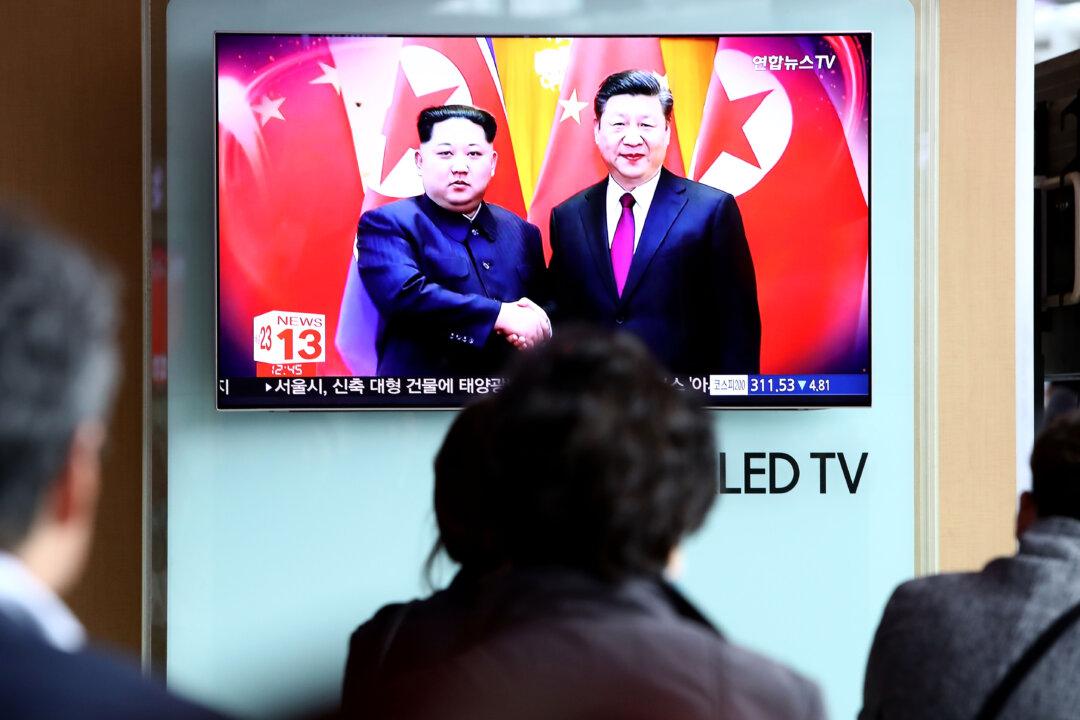North Korean leader Kim Jong Un ended his visit to China on Jan. 9, a trip that experts suggest was aimed at gaining leverage for a future second summit with U.S. President Donald Trump.
The U.S. and North Korean heads of state met in Singapore last June to discuss denuclearization of the Korean Peninsula.
South Korean media first reported that Kim had boarded a train to China on Jan. 7. Chinese and North Korean state-run media later confirmed the news with an official announcement from Beijing that Kim was to be in China until Jan. 10, without providing additional details. But Kim left on a train from Beijing on Jan. 9.
This is Kim’s fourth visit to meet with Chinese leader Xi Jinping within the span of a few short months.
During past visits to China, North Korean state media haven’t confirmed Kim’s trips before he completed them.
The visit also coincides with the timing of a U.S. trade delegation visiting Beijing for negotiations in the ongoing trade war with China.





